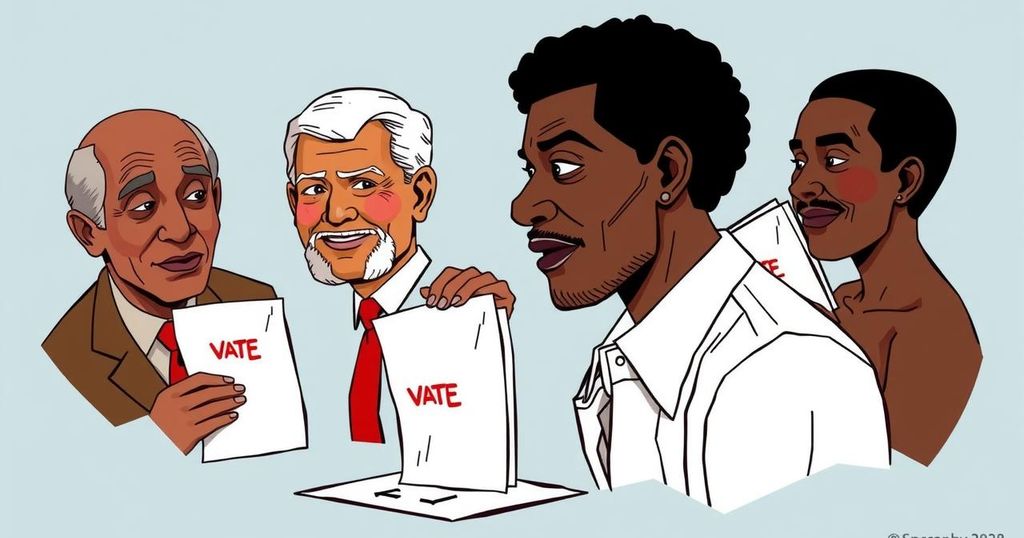Politics
AFRICA, AHMAT MAHAMAT HASSAN, ASSEMBLY, BOKO HARAM, CHAD, CORRUPTION, DEBY, DEMOCRACY, EUROPE, FRANCE, GOVERNANCE, MAHA, MAHAMAT IDRISS DEBY ITNO, MOROCCO, N ' DJAMENA, NATIONAL ASSEMBLY, OPPOSITION, POLITICS, SAHEL, SUCCES MASRA, SUDAN, TRANSFORMERS, UNIVERSITY, UNIVERSITY OF N ' DJAMENA
Isaac Bennett
0 Comments
Chad’s Elections: A Controversial Step Towards Democracy Amid Boycotts
Chad held legislative and local elections boycotted by opposition parties, who called it a ‘masquerade.’ President Mahamat Idriss Deby Itno’s government asserts the vote is a step towards democracy, despite ongoing jihadist attacks, hardship from past turmoil, and a media blackout due to journalist strikes. Opposition leaders denounce participation as legitimizing autocracy.
Chad’s legislative and local elections commenced on Sunday amid accusations of illegitimacy, as the opposition parties boycotted the vote, labeling it a “masquerade”. The elections occur in an environment rife with insecurity, marked by ongoing assaults from Boko Haram and the cessation of a military pact with France. President Mahamat Idriss Deby Itno, who assumed power following his father’s death in 2021, claims these elections represent significant progress toward democratic governance. However, opposition leaders argue that participation would equate to endorsing an oppressive regime. The elections are intended to renew the National Assembly, but previous delays underscore the nation’s political turmoil and instability.
Chad, a landlocked country in the Sahel region, has been under the long-standing influence of the Deby family, specifically Idriss Deby Itno, who ruled for 30 years prior to his death, which led to his son Mahamat taking power. This transition was framed by the government as a necessary step toward democracy. However, significant challenges exist, including rampant jihadist violence, a halt in military cooperation with France, and domestic unrest, which have led opposition groups to fundamentally question the legitimacy and timing of the elections. The last legislative elections were conducted in 2011, exacerbating concerns about the democratic process.
In summary, Chad’s elections represent a critical yet contentious juncture in the nation’s political evolution. While the government seeks to establish a democratic façade, opposition parties vehemently oppose the elections, deeming them fraudulent under the current autocratic conditions. Additionally, the backdrop of violence and humanitarian crises raises pertinent questions about the future of governance and civil rights in Chad.
Original Source: www.barrons.com




Post Comment